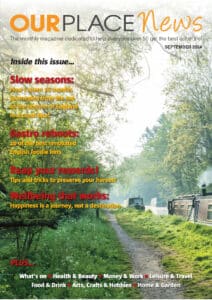Where to Turn
 This Dementia Awareness Week the Alzheimers Society is “encouraging anyone who is worried about dementia to confront their concerns and get in touch…We know dementia can be scary but you don’t have to face it alone.” And with the many thousands of families each year that are touched by dementia it is comforting to know that there are organisations like this for people to turn to. Dementia Scotland have produced a list of Five Things You Should Know About Dementia:
This Dementia Awareness Week the Alzheimers Society is “encouraging anyone who is worried about dementia to confront their concerns and get in touch…We know dementia can be scary but you don’t have to face it alone.” And with the many thousands of families each year that are touched by dementia it is comforting to know that there are organisations like this for people to turn to. Dementia Scotland have produced a list of Five Things You Should Know About Dementia:
Dementia is not a normal part of ageing.
When someone becomes forgetful or confused, friends and family are often quick to say that this is just ‘what happens when you get older’. Some of us do struggle with our memory as we get older or during times of stress or illness. But dementia is different. Lots of people momentarily forget a friend’s name but people with dementia may forget ever having met them. They usually experience a range of other symptoms alongside memory problems and will begin to struggle with daily life as the illness progresses.
Dementia is caused by diseases of the brain.
The most common is Alzheimer’s disease. This changes the chemistry and structure of the brain, causing brain cells to die. Other common types of dementia include vascular dementia, dementia with Lewy Bodies and frontotemporal dementias (including Pick’s disease). It is also possible to have more than one type of dementia at the same time.
Dementia is not just about losing your memory.
People often associate dementia with memory loss, and it does often start by affecting a person’s short-term memory. But dementia can also affect the way people think, speak, perceive things, feel and behave. These symptoms can be very distressing for the person and the family.
It’s possible to live well with dementia
Scientists and researchers are working hard to find a cure or effective treatments for dementia. In partnership with people with dementia and their families, they are also looking into its causes, how it might be prevented and diagnosed earlier, and how to improve quality of life for people living with the condition.
There’s more to the person than their dementia
There is no getting away from it – living with dementia is hard. When someone is diagnosed, their plans for the future might have to change. But dementia doesn’t change who they are or what their history is.
There are lots of tips and facts and other useful information on the Ourplace Health pages
If you are concerned that you, or someone close to you, might have dementia, you can call the Alzheimer Society National Dementia Helpline on 0300 222 1122 or email their [email protected] for advice and support.

